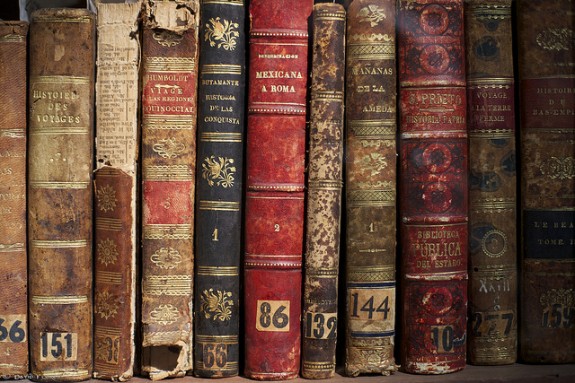That “Old Book Smell” Is a Mix of Grass and Vanilla
Smell is chemistry, and the chemistry of old books gives your cherished tomes their scent

Photo: David Flores
Smell is chemistry, and the chemistry of old books gives your cherished tomes their scent. As a book ages, the chemical compounds used—the glue, the paper, the ink–begin to break down. And, as they do, they release volatile compounds—the source of the smell. A common smell of old books, says the International League for Antiquarian Booksellers, is a hint of vanilla: “Lignin, which is present in all wood-based paper, is closely related to vanillin. As it breaks down, the lignin grants old books that faint vanilla scent.”
A study in 2009 looked into the smell of old books, finding that the complex scent was a mix of “hundreds of so-called volatile organic compounds (VOCs) released into the air from the paper,” says the Telegraph. Here’s how Matija Strlic, the lead scientist behind that study, described the smell of an old book:
A combination of grassy notes with a tang of acids and a hint of vanilla over an underlying mustiness, this unmistakable smell is as much a part of the book as its contents.
More from Smithsonian.com:
Why Do Flowers Smell Good?
What Makes Rain Smell So Good?
Why Asparagus Makes Your Urine Smell
/https://tf-cmsv2-smithsonianmag-media.s3.amazonaws.com/accounts/headshot/smartnews-colin-schultz-240.jpg)
/https://tf-cmsv2-smithsonianmag-media.s3.amazonaws.com/accounts/headshot/smartnews-colin-schultz-240.jpg)